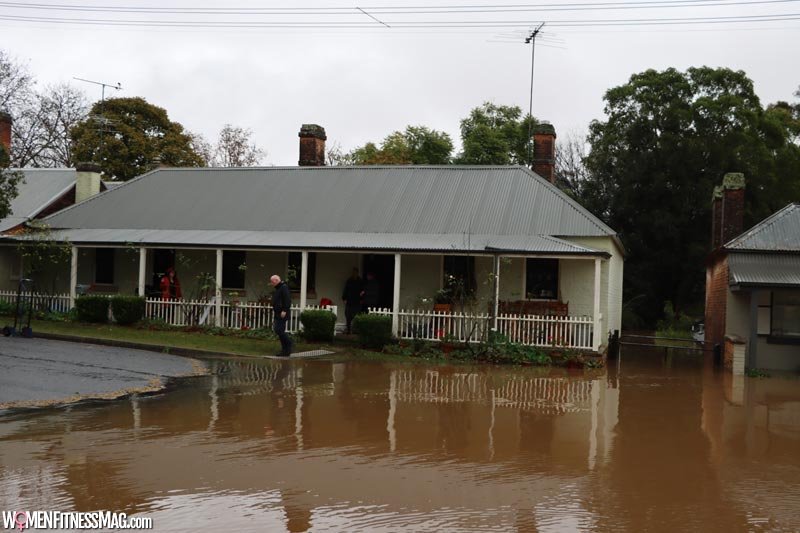Can Water Damage Be Permanent? Understanding the Potential Long-Term Effects : What is the most destructive force that can shake your home? Is it a tornado or an earthquake maybe? Actually, neither. Water damage has more potential to cause serious damage than anything else. From small leaks in plumbing pipes to flooding caused by storms and natural disasters – water damage is capable of wreaking havoc on any property.
While calling Seattle water damage repair experts to restore damaged possessions and to remove murky residue from surfaces are necessary strategies for dealing with water-related issues, understanding its far-reaching effects could be the difference between permanent destruction and successful recovery efforts. Let’s explore whether or not water damage can be permanent. So let’s jump right into it.
Can Water Damage Be Permanent?
Water damage can manifest in various ways, and its effects can range from mild to severe. One of the most common consequences of water damage is structural damage. When water infiltrates the foundation or the walls of a building, it can weaken the structure over time. Continuous exposure to moisture can cause wooden beams to rot, weaken the integrity of concrete, and promote the growth of mold and mildew. If left unaddressed, this structural damage can become permanent, compromising the stability of the entire building and leading to costly repairs or even collapse.
Mold and mildew growth is another long-term effect of water damage. When moisture lingers in a building, it creates an ideal environment for mold and mildew to thrive. These fungi not only pose health risks to occupants but also cause extensive damage to the surfaces they inhabit. In the wake of serious water damage to a property it’s crucial that you contact a company experienced with mold inspection in Conifer, CO (or elsewhere more relevant) so that you can have the issue looked at closely and have remediation done if necessary. This is because Mold can penetrate porous materials like drywall, carpeting, and insulation, rendering them unsalvageable. Moreover, the spores released by mold can spread through the air and contaminate other areas of the property, making the removal process more challenging. If the issue is not dealt with by the aforementioned experts, mold, and mildew can persist indefinitely, causing ongoing health issues and decreasing the value of the property.
Electrical systems are also susceptible to water damage, and the long-term consequences can be severe. Water is an excellent conductor of electricity, and when it comes into contact with electrical components, it can lead to short circuits, electrical fires, or electrocution hazards. Even after the visible signs of water damage are addressed, the moisture that seeped into electrical wiring or appliances can continue to corrode the system. This corrosion can cause intermittent faults, reduce the lifespan of electrical equipment, and increase the risk of electrical malfunctions in the future. To ensure the safety of occupants and prevent permanent damage, it is essential to have a professional inspect and repair any water-damaged electrical systems.
Another aspect to consider is the potential damage to personal belongings and valuables. Furniture, electronics, documents, photographs, and sentimental items are all vulnerable to water damage. When exposed to excessive moisture, furniture can warp, upholstery can become stained, and wood can rot. Electronics may cease to function properly, and valuable documents or photographs can be permanently destroyed. The financial and emotional loss of these items can be significant, and in some cases, they may be impossible to restore. Therefore, taking immediate action to salvage and dry personal belongings after water damage is crucial to minimize permanent loss.
Water damage can have long-lasting effects on the indoor air quality of a property. As mentioned earlier, mold and mildew can proliferate in moist environments. The spores released by these fungi can circulate through the air, leading to respiratory problems, allergies, and other health issues for occupants. Even after the visible signs of mold are eliminated, the microscopic spores can remain in the air or settle in hidden areas, such as HVAC systems or ductwork. These hidden reservoirs can continuously contaminate the indoor air, leading to persistent health problems unless proper remediation and thorough cleaning are conducted.
Water damage can have permanent consequences if not properly addressed. The potential long-term effects of water damage encompass structural damage, mold and mildew growth, damage to electrical systems, loss of personal belongings, and compromised indoor air quality. Recognizing the severity of water damage and taking immediate action to mitigate its effects is crucial to prevent permanent and costly damage. It is recommended to consult with professionals specializing in water damage restoration to ensure thorough and efficient recovery. By understanding the potential long-term effects of water damage, homeowners and property managers can make informed decisions and safeguard their properties for years to come. Remember, prevention and timely intervention are key to mitigating the lasting impact of water damage.
Related Videos about Can Water Damage Be Permanent? Understanding the Potential Long-Term Effects :
Can Water Damage Be Permanent? Understanding the Potential Long-Term Effects
drinking hard water side effects, is drinking hard water bad for your kidneys, harmful effects of hard water, too much calcium in water side effects, effects of hard water on human body, how long does it take to dry out water damage, how long does it take for water damage to affect a phone, signs of water damage under floor,




